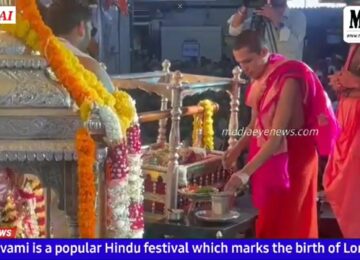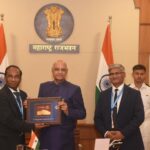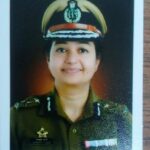Anupama Nair
India is the birth land of many brave sons and daughters who sacrificed their lives for their motherland. Rana Pratap, Shivaji Maharaj, Rani Laxmi Bai, and many more, the list is never ending. Even after independence many brave sons and daughters gave their lives for us. “The Indian Army has been filled with spine-chilling tales of valor, the indomitable spirit in the face of adversity, and unparalleled devotion towards our motherland”. It is said that brave hearts are not born with any special power, they are ordinary people like us but they possess indomitable spirit and bravery when the situation demands. So is the tale of our brave Indian army soldiers who have proved it time and again after independence.
Today, I am going to talk about some officers whose ‘tale of valor’ inspired us over the years. It is a known fact that the braves of the Indian Army sacrifice their own lives during any war so that the entire country can sleep in peace. The stories of their bravery, courage, and passion are larger than life stories. Their bravery will not only just make us proud but also their sacrifices will leave our eyes a little moist.
Today I am going to talk about the 1962 Indo-Chinese war and how our brave soldiers fought for their motherland. A disputed Himalayan border was the main cause of the war between the two countries. There had been a series of violent border combats between the two countries after the Tibetan uprising of 1952 when India granted asylum to the Dalai Lama. India followed a defensive Forward Policy from 1960 to hinder Chinese military patrols and logistics, which it placed outposts along the border, including several north of the McMahon Line (the eastern portion of the Line of Actual Control) that was claimed by China in 1959.
China retaliated after India rejected proposed Chinese diplomatic settlements throughout 1960–1962, with China re-commencing previously-banned ‘forward patrols’ in the Ladakh region from 30 April 1962. China finally abandoned all attempts of peaceful resolution on 20 October 1962, invading disputed territory along the 3,225-kilometer long Himalayan border in Ladakh and across the McMahon Line. Chinese troops advanced over Indian forces Rezang La in Chushul in the western border, as well as Tawang in the eastern border. The war ended when China declared a ceasefire on 20 November 1962, and simultaneously announced its withdrawal to its “Line of Actual Control”.
Now I am going to talk about the brave hearts of the war.
Lieutenant Colonel Dhan Singh Thapa (10 April 1928–6 September 2005) was an officer of the Indian army and recipient of the Param Vir Chakra. Thapa was earlier commissioned in the 1st Battalion, 8 Gorkha Rifles in 1949. When the Sino-Indian War began in October 1962, the Chinese advanced north of Pangong Lake with the main objective of capturing Sirijap and Yula. Srijap was a post established on the northern bank of Pangong Lake by the 1st Battalion of 8 Gorkha Rifles and it was commanded by the braveheart Dhan Singh Thapa. Soon the post was surrounded by better armed Chinese forces and Thapa and his men held the post and resisted three attacks before eventually being captured. Unfortunately, the survivors, including Thapa, were taken as prisoners of war. He was awarded the Param Vir Chakra for his bravery and his efforts to motivate his men under fire. Thapa was released from captivity when the war ended. Following retirement from the Army, he worked for a brief period with Sahara Airlines. He died on 6 September 2005.
Subedar Joginder Singh Sehnan (28 September 1921 – 23 October 1962), was a brave soldier who posthumously received the Param Vir Chakra. Singh joined the British Indian Army in 1936 and had served in the 1st battalion of the Sikh Regiment. During the Sino-Indian War in 1962, he was commanding a platoon at the Bum La Pass in the North-East Frontier Agency. Though heavily outnumbered, he bravely led his troops against a Chinese attack and defended his post till he was wounded and captured. He succumbed to his injuries while in Chinese captivity. He single-handedly killed more than 50 Chinese soldiers and created history in the Indian Army.
Major Shaitan Singh (1 December 1924 – 18 November 1962) was a brave and courageous officer of the Indian Army and the recipient of the Param Vir Chakra. He was born in Rajasthan. Singh joined the Jodhpur State Forces and was transferred to the Kumaon Regiment after the princely state of Jodhpur merged into the Republic of India. He also took part in operations in the Naga Hills and also in the 1961 Indian annexation of Goa. During the 1962 War, the 3rd Battalion of Kumaon Regiment was stationed in the Chushul sector. C-Company, under the command of Singh, was holding a position at Rezang La. Sources say “after several unsuccessful attacks from the front, the Chinese attacked from the rear”. The Indians fought till their last breath, before eventually being overpowered by the Chinese. During the battle, Singh continuously moved from post to post reorganizing the defenses and boosting the morale of his men. As he moved between the posts without any cover, he was seriously wounded, and later succumbed to his injuries. For his bravery, Singh was awarded the Param Vir Chakra.
In the next part, I will be talking about the 1971 Indo-Pak war. Vandemataram!



